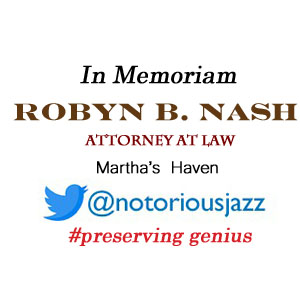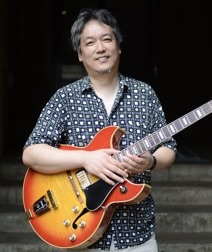
Daily Dose Of Jazz…
Takeshi Ogura was born on June 17, 1962 in Tokyo, Japan. He initially studied piano and trumpet before switching to the guitar. Moving to New York City at 26, he studied jazz guitar with be-bop guitar pioneer Chuck Wayne while attending The College of Staten Island in the Eighties. There he studied harmony and composition with Dr. Joseph Scianni. For ten years he was active on the New York jazz scene, then life caught up with him and he quit playing.
Takeshi got back to playing guitar in 2001 and has steadily built a reputation as a versatile and expressive player. Taking up residence in the Bronx, he often appears around the city with his jazz trio playing his compositions and unique arrangements of jazz standards. Since 2009 he regulary performs at The Bass Line in Mt. Vernon, New York.
He has shared stage performances with Duke Jones, Norman Connors, Sean Smith, Scott Fragala, Tyrone Govan, John Cooksey, John Fumasoli, James “Sugar Bear” Skelton, Jr., Art Bennett, Jasper Cain, Bill Crow, Seiji Ochiai, Dwayne Purdue, and Hiroshi Yamazaki.
Guitarist Takeshi Ogura, who has never led a recording session, continues to support this local and regional jazz scene with his trio and funk-jazz band New Project, along with Alan Eicher, Rondew Monroe and Greg Brown.
More Posts: bandleader,guitar,history,instrumental,jazz,music

Daily Dose Of Jazz…
Susanne Alt was born April 15, 1978 in Würzburg, Germany to Hans-Joachim and Maria Alt. Her father is a composer, poet and piano teacher, and mother a guitar teacher. After studying classical piano and guitar with her parents, she began playing the saxophone at thirteen and successfully participated in several saxophone competitions.
While still in high-school she started taking lessons in classical saxophone at the Meistersingerkonservatorium Nuremberg between 1993 and 1995, becoming a full-time student there in the 1995–96 academic year. During this period Susanne began practicing jazz and after winning the Siemens-Jazz-Förderpreis, she moved to the Netherlands to continue her studies at the Hilversums Conservatorium. Returning to Germany for postgraduate studies, she enrolled in the Berlin University of the Arts in 2000.
Forming the Susanne Alt Quartet in 2003, in the following year she released her debut album, Nocturne at Bimhuis, Amsterdam, Netherlands. Five jazz albums later, she released the funk album Saxify in 2016, preceded by the 7-inch single Saxify. The album features 36 musicians, amongst them are Fred Wesley, Michael “Clip” Payne, Michael Hampton, Rodney “Skeet” Curtis, and Roger Smith of Tower Of Power.
Alt has collaborated with a number of notable musicians and ensembles and has also toured worldwide. Saxophonist and composer Susanne Alt is based in Amsterdam, and continues to pursue her desire for new musical experiences.
More Posts: bandleader,composer,history,instrumental,jazz,music,saxophone
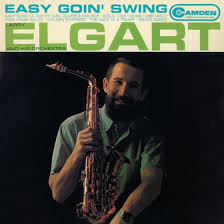
Daily Dose Of Jazz…
Lawrence Joseph Elgart was born on March 20, 1922 in New London, Connecticut and grew up in Pompton Lakes, New Jersey. His mother was a concert pianist and his father also played piano, though not professionally. With his brother Les they attended Pompton Lakes High School.
Both brothers began playing in jazz ensembles in their teens, and young Larry played with jazz musicians such as Charlie Spivak, Woody Herman, Red Norvo, Freddie Slack and Tommy Dorsey. In the mid-1940s, Les and Larry started up their own ensemble, hiring Nelson Riddle, Bill Finegan and Ralph Flanagan to arrange tunes for them. Their ensemble was not successful, and after a few years, they scuttled the band and sold the arrangements they had commissioned to Tommy Dorsey. Both returned to sideman positions in various orchestras.
In 1953, Larry met Charles Albertine and recorded two of his experimental compositions, Impressions of Outer Space and Music for Barefoot Ballerinas. The recordings were not commercially successful but became collector items for fans of avant-garde jazz. With Albertine they put together an ensemble and using precise microphone placements produced what came to be known as the Elgart Sound. Proved to be very commercially successful, throughout the 1950s they enjoyed a run of successful albums and singles on the Columbia label.
Their initial LP, Sophisticated Swing, released in late 1953, was credited to The Les Elgart Orchestra, because, according to Larry, Les was more interested than his brother in fronting the band. In 1954, the Elgarts left their permanent mark on music history in recording Albertine’s Bandstand Boogie, for the legendary television show American Bandstand. In 1955, the band became The Les and Larry Elgart Orchestra, but the brothers split in 1959, each subsequently releasing his own series of albums.
Larry signed with RCA Victor and his 1959 album New Sounds At the Roosevelt was nominated for a Grammy. From 1960 to 1962, he released music on MGM Records. The brothers reunited in 1963 and recorded several more albums until 1967 they again went their separate ways.
In 1981 he departed from the Elgart Sound for jazz funk and fusion genres, producing Flight of the Condor for the RCA Victor. His biggest exposure came in 1982, with the success of Hooked on Swing. The instrumental was a medley of swing jazz hits In the Mood, Cherokee, Don’t Sit Under the Apple Tree, American Patrol, Sing, Sing, Sing, Don’t Be That Way, Little Brown Jug, Opus #1, “ake the A Train, Zing Went the Strings of My Heart and A String of Pearls.
Alto saxophonist and bandleader Larry Elgart, who was a resident of Longboat Key, Florida died on August 29, 2017 at a hospice center in Sarasota, Florida at the age of 95.
More Posts: bandleader,history,instrumental,jazz,music,saxophone
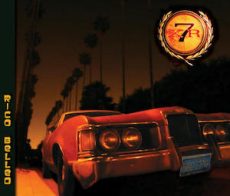
Daily Dose Of Jazz…
Rico Belled was born in the Netherlands on May 9, 1970 to Spanish/Swiss parents. Growing up in a multicultural environment, with a pianist father, he was exposed to many styles of music. He started playing piano at age 11, exploring everything from classical music to jazz. At 15 he started playing gigs with local bands doing pop and blues, while slowly getting interested in the bass, which he started practicing at age 17.
In 1989, while studying electrical engineering at the TU Delft, Rico met Roy Cruz in The Hague and joined his weekly Sunday night band at De Pater, exploring the world of Funk and Jazz playing Fender Rhodes. During these sessions they broke down all stylistic walls from playing Weather Report tunes to full on James Brown Funk, featuring as many as 10 people on the little stage. Here he got an education in the art of jamming.
Realizing music was his passion, in 1992 Belled gave up engineering and moved to Los Angeles, California and attended the Musicians Institute in Hollywood. Post graduation he was already playing with a few different groups in the Los Angeles area and in the following years made a name for himself as a bass and keyboard session musician. His breakthrough came when he joined Wrecking Crew pianist Don Randi and the house band at the Baked Potato in 1994. A two year residency offered the opportunity to lead his own group performing his original music at the club.
This led to him performing and recording with Marc Antoine, The Dan Band, Sound Assembly, Jeff Robinson, Leslie Paula’s Latin Soul Band, Liza Minelli, Chris Standring, Scott Grimes, Keiko Matsui and many others. He has co-written and published music with Mindi Abair and Jeff Robinson. All this led to him being asked to join the Rippingtons, starting with recording the album ‘Modern Art’, for which he received a Grammy Nomination in 2010. Still a member, bassist Rico Belled remains one of the top bassists in Los Angeles, known for his deep groove and versatility, staying busy live and in the studio.
More Posts: bandleader,bass,composer,history,instrumental,jazz,music
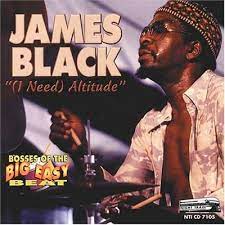
Daily Dose Of Jazz…
James Norbert Black was born on February 1, 1940 in New Orleans, Louisiana. He played piano and trumpet during his youth and studied music at Southern University in Baton Rouge, Louisiana. He first started working in R&B ensembles as a drummer in the late 1950s, but took a job drumming with Ellis Marsalis in the New Orleans Playboy Club, leading to further work in jazz idioms.
A move to New York City in the mid-Sixties and worked in jazz idioms during the decade with Nat Perrilliat, Roy Montrell, Ellis Marsalis, Nat Adderley and Cannonball Adderley, Joe Jones, Horace Silver, Lionel Hampton, Yusef Lateef, Freddie Hubbard, and Eric Gale.
Returning to New Orleans near the end of the 1960s, playing there with Dr. John, James Booker, Fats Domino, Professor Longhair, Charles Neville, James Rivers, Earl Turbinton and the Dukes of Dixieland. Scram Records brought James on as a session musician, and can be heard on Eddie Bo’s single Hook and Sling. In the 1980s he worked with Cassandra Wilson, Wynton Marsalis, and Germaine Bazzle.
Black was a composer and received two grants from the National Endowment for the Arts. Among his works are Monkey Puzzle and Dee Wee, both of which were recorded by Ellis Marsalis’s ensemble in the early 1960s. Recordings under his name were compiled by Night Train Records and released on CD as I Need Altitude: Rare and Unreleased New Orleans Jazz and Funk, 1968-1978.
Drummer James Black, closely associated with the New Orleans jazz scene, transitioned on August 30, 1988.
More Posts: bandleader,drums,history,instrumental,jazz,music



